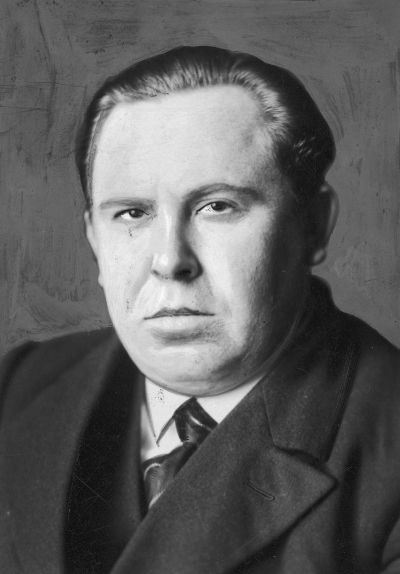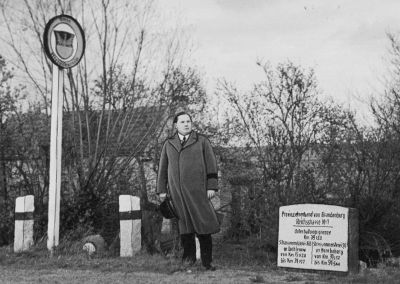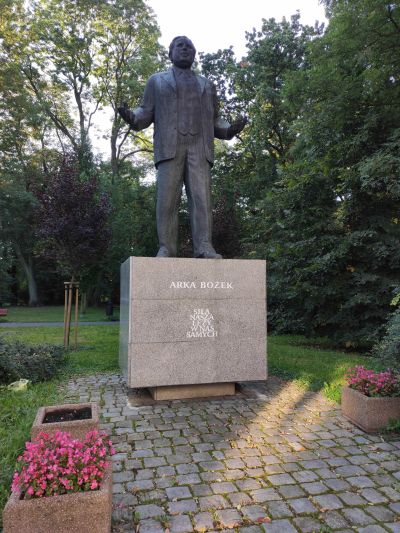Arka Bożek – Polish minority activist in Silesia, politician and publicist

In June 1939, Bożek decided to leave Germany illegally. He travelled to Warsaw and from there to Katowice, where, thanks to the efforts of his friends, he was given a job in the office of the mines of Pless / Pszczyna belonging to the Prince of Hochberg. He was very concerned about his wife and children, who were subjected to all manner of harassment. It was a very difficult time for Bożek, who had spent his entire adult life fighting for the Polish cause in Silesia and who, despite his extensive experience – like many Poles abroad – had a rather idealised image of Poland. His contacts in the mines of Pless told him about the miners’ low standard of living and about the, in their opinion, poor administration of Polish Silesia and the discrimination against Silesians. Bożek was very troubled by this, but he tried to stress the need for national unity in the face of the increasingly clear threat of war with Germany. Nevertheless, his reflections during this time were to influence his views and attitude to political issues in the years that followed.
After the outbreak of the Second World War, he found himself in Lwów, where thousands of Polish refugees had arrived. Bożek was shaken by Poland’s swift defeat. After the Soviet aggression, he decided to go to Romania, from where he reached France via Yugoslavia and Greece in November 1939. His farm was confiscated at this time. Jadwiga Bożek and her daughters became forced labourers on their own farm and were monitored by the police and the local administration.
Bożek remained very active during his period of emigration. He became a member of a Polish delegation sent to the USA to seek financial support and encourage members of the Polish immigrant community to join the nascent Polish army. After the de facto capitulation of France in 1940, he reached London. The National Council (Rada Narodowa), a kind of parliament in exile, became the most important forum for Bożek’s political activities and he was an independent member of the council until 1945. As he was not part of the pre-war Polish political elite, Bożek remained an outsider despite the gradual expansion of his contacts. He liked to highlight not only his Silesian but also his farming origins. Ideologically, he was close to the socialists and farmers represented in the council. He was in favour of agrarian reform, the development of cooperatives and the nationalisation of certain sectors of the economy. He saw the social reforms as an opportunity to give Silesians themselves their rightful place in Polish society after the war. The fate of Silesian prisoners of war and deserters from the German army was very close to his heart: he argued that they should be drafted into the Polish armed forces as soon as possible and treated equally.
Bożek often spoke in the National Council about changing the western border in favour of Poland or about the future model of Silesian administration. Like other Silesian activists, he expected ethnic relations in the area to change after the war due to the disappearance of the German population. His pre-war experiences, but also knowledge of German crimes in Poland, certainly contributed to such views. Bożek was one of the most active Silesian and indeed Polish activists in exile and one of the co-initiators of the founding of the Working Group of Silesians in Great Britain. In late 1942, this circle proposed in a memorandum to the Polish centres of power in exile that the Polish border be established along the Oder and the Lusatian Neisse, a position that went further than the territorial demands of the Polish government at the time. At the same time, Bożek was in favour of a confederation of Poland and Czechoslovakia, emphasising the need for Slavic unity. He appears to have been unfamiliar with the goals of Soviet policy and the characteristics of Soviet communism itself due to a lack of personal experience. His views were shaped above all by his experiences of harassment and repression in Germany. Towards the end of the Second World War, Bożek became increasingly vocal in his demands for large territorial gains for a territorially reduced Poland at the expense of Germany. The distance between Bożek and the mainstream of the Polish émigré community, which rejected any political concessions, became ever clearer.







